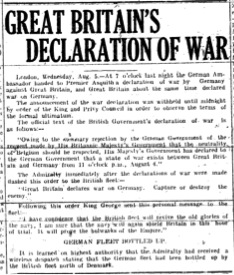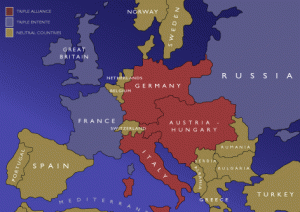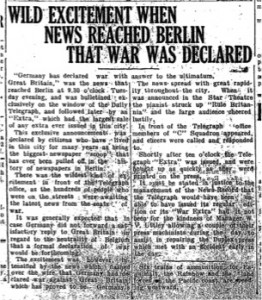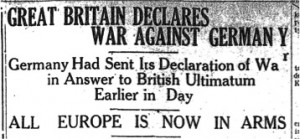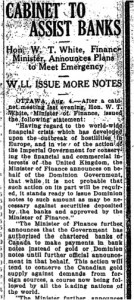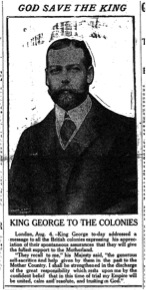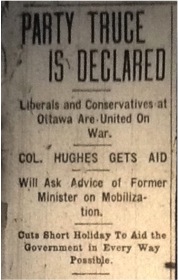When the German Army began to move through neutral Belgium, on the morning of 4 August, Britain issued an ultimatum to Germany to leave Belgian soil, acting as a protector of Belgium. Germany’s disregard for Belgium’s neutrality was in violation of the Hague Treaty, signed in 1907. The Treaty stipulated that Britain, France, Germany and other great powers in Europe guaranteed the neutrality of neutral countries during times of war.
Germany was trying to use Belgium as a route towards the French border, in an attempt to outflank the French army. When Germany did not respond to Britain’s ultimatum by midnight (Berlin time) the ultimatum expired. Shortly after the expiration, Britain received a note from Germany declaring war. This declaration was received at the same time that Britain sent out her declaration of war against Germany. Britain’s declaration of war read:
“Owing to the summary rejection by the German Government of the request made by His Britannic Majesty’s Government that the neutrality of Belgium should be respected, His Majesty’s Government has declared to the German Government that a state of war exists between Great Britain and Germany from 11 o’clock p.m., August 4.”
At 11 p.m. in London, England, the British Empire as a whole was at war with Germany and her allies.
(“Great Britain’s Declaration of War,” Waterloo Chronicle-telegraph, 6 August 1914; “Sir R.L. Borden in opening the special session of the Dominion Parliament,” Elmira Signet, 27 August 1914)
